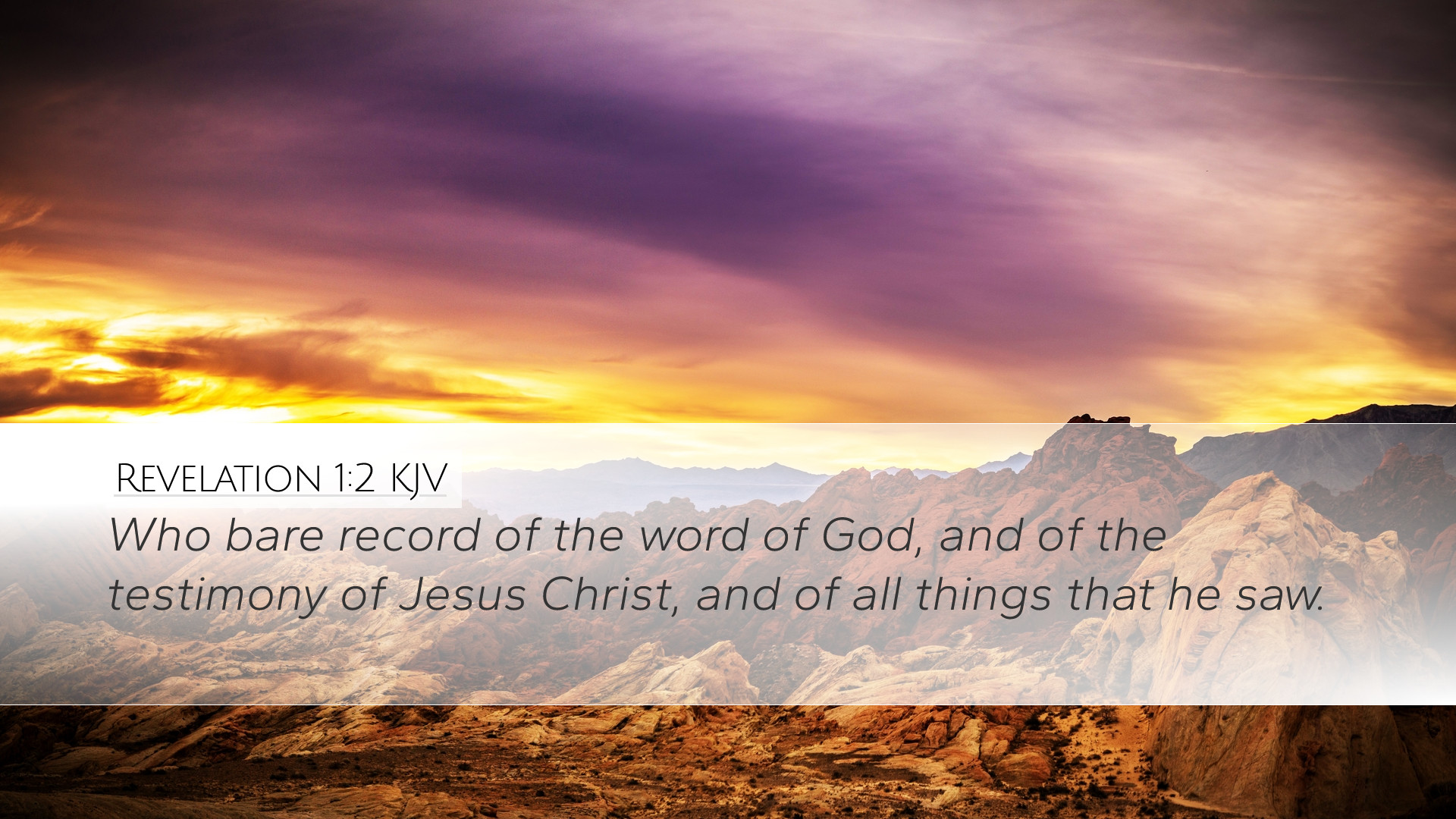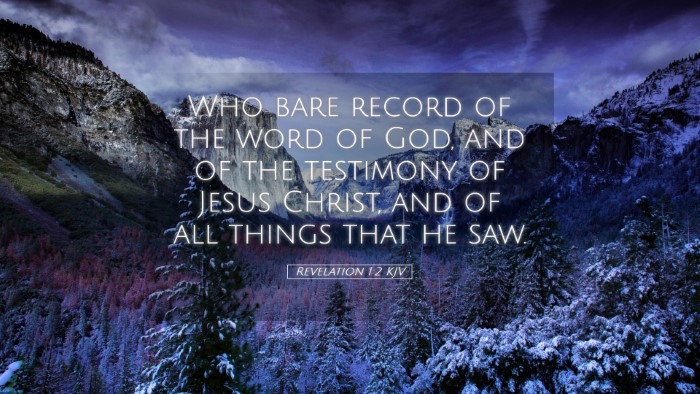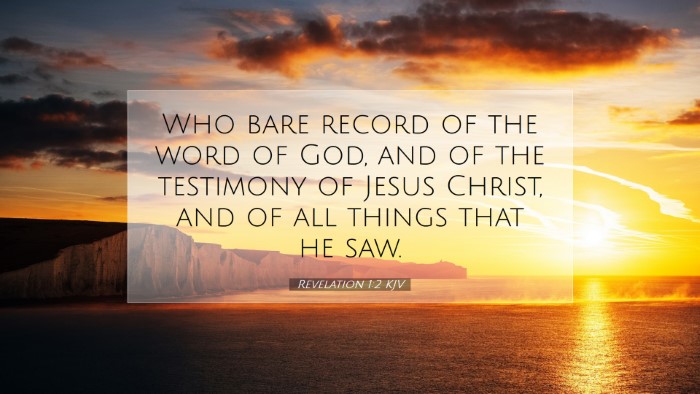Commentary on Revelation 1:2
Verse Context: Revelation 1:2 reads: "Who bare record of the word of God, and of the testimony of Jesus Christ, and of all things that he saw."
Introduction
The Book of Revelation, the final book of the New Testament, presents a highly symbolic and prophetic vision granted to John during his exile on the island of Patmos. This verse introduces the reader to the essential elements of John’s revelation, establishing his authority as a witness to the divine messages he is about to unveil. It emphasizes the importance of the “word of God” and the “testimony of Jesus Christ.”
Insights from Commentators
-
Matthew Henry
Henry asserts that John's role as a witness is foundational. His bearing witness to the word of God emphasizes the reliability of the divine message. It is essential for the believer to recognize that the testimony of Jesus Christ stands at the heart of the Christian faith. The “things that he saw” indicate a comprehensive vision that encompasses more than mere words; it is a vivid encounter with the divine.
-
Albert Barnes
Barnes focuses on the imperative nature of “the word of God” in this verse. He notes that John’s record not only reflects the spoken words of God but also embodies God's will and purpose for humanity. The “testimony of Jesus” encapsulates the life, death, and resurrection of Christ, urging believers to consider the transformative power of His message in their lives. Barnes also emphasizes that John was not only a passive recipient of these revelations but an active participant in their proclamation.
-
Adam Clarke
Clarke remarks on the authority given to John as he conveys the visions he received. He highlights that the term "bare record" signifies a solemn affirmation, establishing John's credibility as a prophet. Clarke elaborates on the significance of witnessing in the Christian faith, noting that it is a shared responsibility among believers to testify about what they know and believe regarding Jesus Christ. This lays the groundwork for the urgency and seriousness of John's subsequent messages.
Theological Significance
This verse functions as a preamble to understanding the themes of Revelation. The “word of God” indicates the divine authority behind the narrative that unfolds, while the “testimony of Jesus Christ” serves as a foundational truth that the entire Revelation interprets and expands upon.
Through the lens of these insights, we recognize the essential relationship between prophecy and testimony in Christianity. Believers are encouraged to reflect on their own testimonies as important extensions of the biblical narrative. Each Christian is called to bear witness, thereby participating in the unfolding story of God’s revelation to humanity.
Practical Application
For pastors and teachers, this commentary serves to reaffirm the importance of standing firm in God's word when preaching and teaching. The commitment to accurately representing the “word of God” and the “testimony of Jesus Christ” should be paramount. Furthermore, the integration of personal experience as testimony provides profound relatability to congregations.
Students of theology and scholars alike are invited to delve deeper into the implications of John's revelations. They should consider how these divine encounters shape our understanding of God's nature and His redemptive plan through Jesus Christ.
For Bible scholars, the study of this verse opens the door for critical examination of how testimony functions in biblical literature and how it influences ecclesiology, missiology, and personal faith narratives in contemporary contexts.
Conclusion
Revelation 1:2 captures the essence of John's commission as a prophet and witness. By highlighting the importance of bearing record to the “word of God” and the “testimony of Jesus Christ,” it invites us into a deeper engagement with the Scriptures and encourages each believer to take part in God’s redemptive narrative. The richness of its implications extends beyond the text, inviting all who seek to understand God's revelation to engage actively with the life of faith in community.


